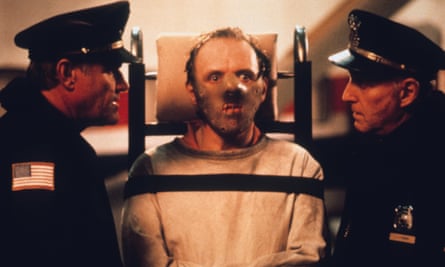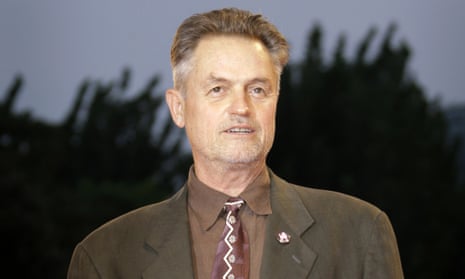Film director Jonathan Demme, best known for The Silence of the Lambs and Something Wild, has died at the age of 73. His publicist told Variety that the cause of death was “cancer complications”.
The Silence of the Lambs, the horror-thriller adapted from Thomas Harris’ novel, was the high point of his career as a mainstream film-maker: the film won five Oscars, including best director for Demme, and made its central character, Hannibal Lecter, into a household name.
However, it was untypical of Demme’s career, both before and after its 1991 release. Having spent much of the 1960s living in London and working as a music writer, Demme cut his teeth in the no-budget school of Roger Corman: initially as a writer, then gaining his first directorial credit on the prison flick Caged Heat in 1974. (Its tag line: “Women’s prison USA – Rape Riot and Revenge! White Hot Desires melting cold prison steel!)
After directing two other films for Corman, Demme found a niche in the burgeoning independent cinema scene with his 1980 film Melvin and Howard, a comedy about a former milkman who claims to be the heir of Howard Hughes. Later in the same decade, Demme completed the yuppie-in-peril comedy Something Wild, which gave Melanie Griffith one of her early successful roles.
The Silence of the Lambs, he said later, “was a great delirious shock to everybody concerned”, but he appeared to being disquieted by the controversies that accompanied it, and subsequently concentrated on films that reflected his own politically liberal credentials. Philadelphia, which starred Tom Hanks in an Oscar-winning performance and brought Aids and gay characters into the mainstream. Meanwhile, Beloved, released in 1998, was an adaptation of Toni Morrison’s seminal novel about slavery.

Alongside his feature film career, Demme indulged a taste for the odd, the eccentric and the underground. He made documentaries about Talking Heads (including Stop Making Sense, 1984), Neil Young (among them Heart of Gold, 2006) and his radical priest cousin (Cousin Bobby, 1992); he filmed Spalding Gray’s celebrated one-man show Swimming to Cambodia (1987), and shot a profile of US president Jimmy Carter (Man from Plains, 2007).
His mainstream film-making took a dip in the 2000s, after the poorly received remake of Charade, The Truth About Charlie and a new version of The Manchurian Candidate, but he restored his reputation with the wedding comedy-drama Rachel Getting Married and the likable girl-rocker film Ricki and the Flash.
Jodie Foster, who won an Oscar for her role in The Silence of the Lambs, released a statement earlier today. “I am heart-broken to lose a friend, a mentor, a guy so singular and dynamic you’d have to design a hurricane to contain him,” it read. “Jonathan was as quirky as his comedies and as deep as his dramas. He was pure energy, the unstoppable cheerleader for anyone creative. Just as passionate about music as he was about art, he was and will always be a champion of the soul. JD, most beloved, something wild, brother of love, director of the lambs. Love that guy. Love him so much.”
Meryl Streep, who took the title role in Ricki and the Flash, also released a statement to pay tribute to “A big hearted, big tent, compassionate man”, while Tom Hanks called him “the grandest of men”.
Very sad to hear of the passing of the great Jonathan Demme. Admired his movies, his documentaries, his concert films. He could do anything.
— edgarwright (@edgarwright) April 26, 2017
Film-makers such as Edgar Wright and James Wan have also paid tribute to Demme on Twitter, with Wright saying: “Admired his movies, his documentaries, his concert films. He could do anything.”
